
Preventative dental care, especially dental exams, are a crucial component of preventive healthcare, and they can lead to early diagnosis and intervention for a wide range of oral health issues. Here’s how dental exams contribute to early diagnosis:
Regular dental exams, typically recommended every six months, play a crucial role in maintaining optimal oral health. Preventative dental care not only helps diagnose issues early but also allow for timely intervention and preventive measures, ultimately reducing the risk of more extensive and costly dental problems in the future.
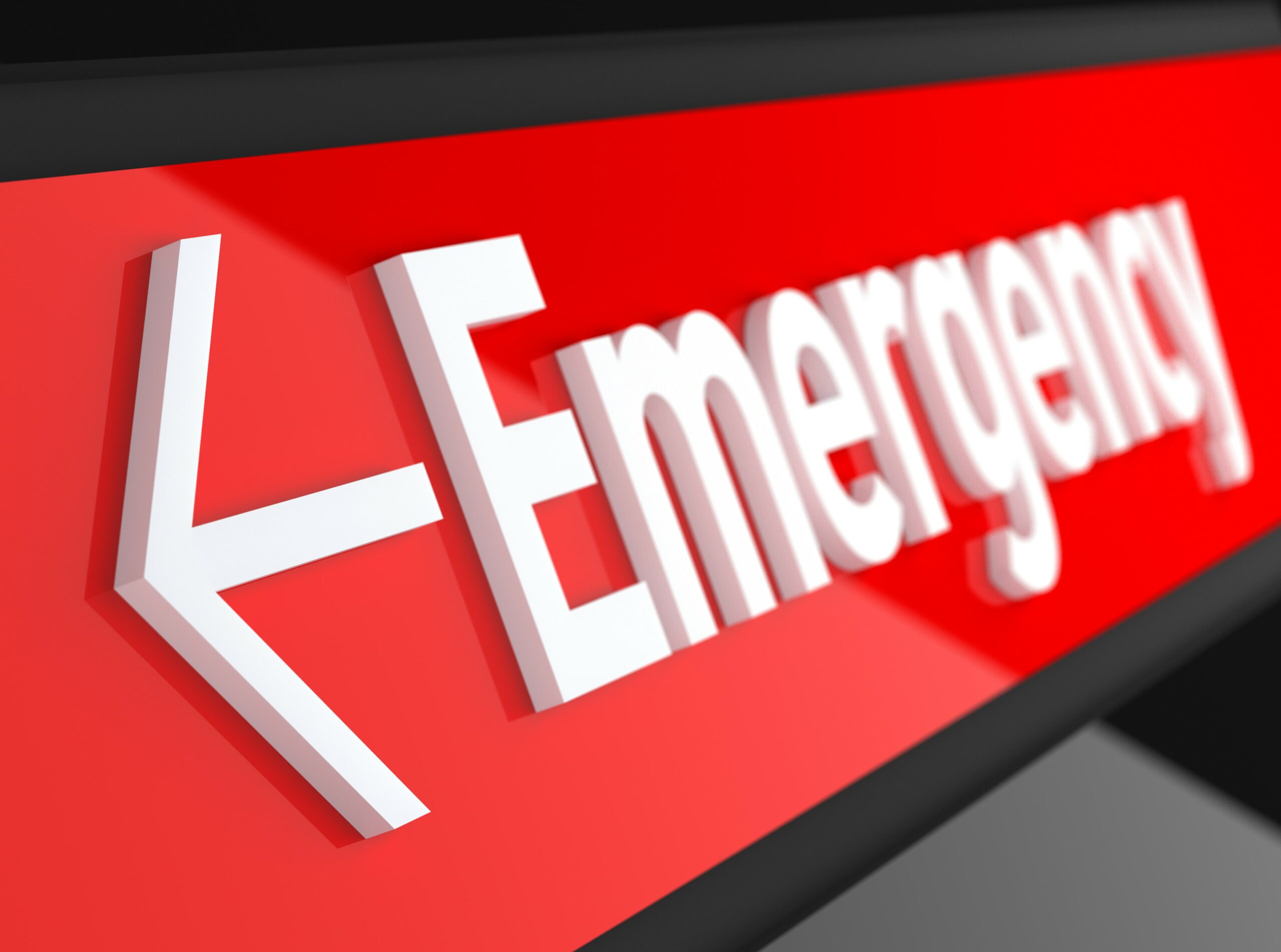
Toothaches, or any kind of ache really, are never fun to experience. We thought we’d take a look at some common dental emergencies and the importance of seeing your dentist if you may be experiencing any toothaches, oral pain or are suffering from a painful dental emergency. Remember, if you’re overdue for a dental appointment, call us today to get that scheduled and stay on top of your oral health, which can help avoid some dental emergencies in the future.
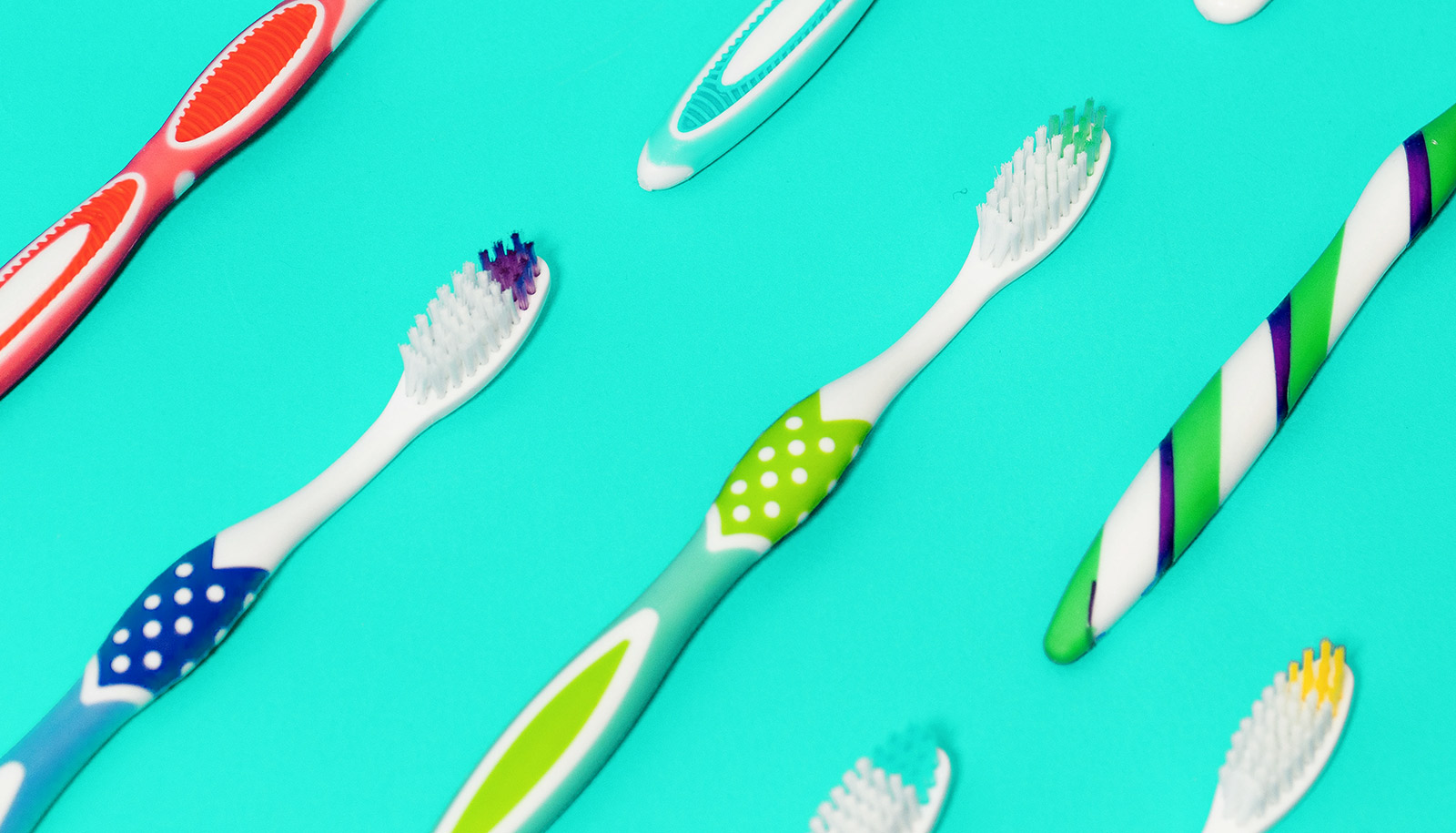
We talk a lot about the importance of good oral health and that includes brushing, flossing, and seeing your dentist on the regular. Let’s take a deeper dive into brushing, more specifically, the tool you’re using to brush those pearly whites. You might ask yourself, “when’s the last time I changed out my toothbrush?” We often throw away old food, donate clothes, replace beauty products, etc., but adding a change into your routine to replace your toothbrush will have a bigger affect than you might think.
Related Article from The ADA: 8 bad brushing habits to break

Your dental exam can expose and help diagnose Oral Cancer and Gum Disease early …
You know that your dental team keeps your mouth healthy and clean when you schedule your dental exam and cleaning every six months, but did you know that getting regular dental checkups is the most important procedure against oral cancer and gum disease? Your dentist is doing a lot more than just checking up on your smile and making sure you don’t have any cavities. Preventative dentistry can detect early signs of cancer, gum disease, and other major health problems. All in all, preventative dentistry could save your life.
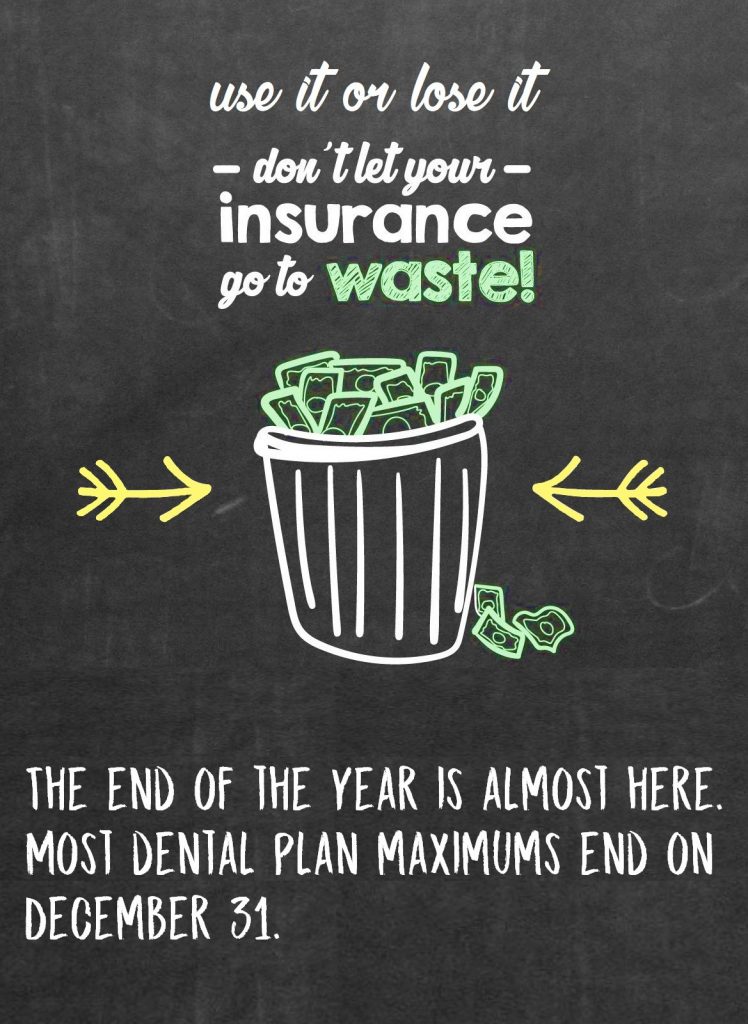
We can help you maximize dental benefits! Did you know that your dental insurance plan will automatically reset on December 31 every year? That date is approaching quickly, so it’s time to start thinking about making the most of your dental benefits before time runs out. Call us today to get your end-of-the-year appointments scheduled and on the books for peace of mind, and to get the most out of the dental insurance you pay for.
Learn More about dental insurance from the American Dental Association: “Use it or Lose it”
This will vary from person to person, depending on what unique services you need to make your oral health 100 percent. Talk with your dentist to determine what services you need to stay healthy. More than likely, a routine dental exam and cleaning is an appointment almost everyone can make before the end of the year – this is a preventive care appointment.
Check over your insurance plan to learn if your insurance covers multiple cleanings every year. If so, make the most of your dental benefits by getting your cleaning in before the holiday-craziness begins and schedules tighten. Also, if you have questions for your dentist or you are curious about the status of your oral health, a routine check-up is the perfect way to learn about your teeth’s health and ask questions.
Appointments can often be categorized into two groupings – preventative and elective services.
Preventative dentistry is all about maintaining oral care and preventing oral health problems down the line. This often includes regular cleanings, regular oral exams, routine x-rays, and a oral cancer screening. Dental insurance plans often fully cover preventative care services and appointments. You can also help maintain your oral health at home by brushing twice a day and flossing once a day.
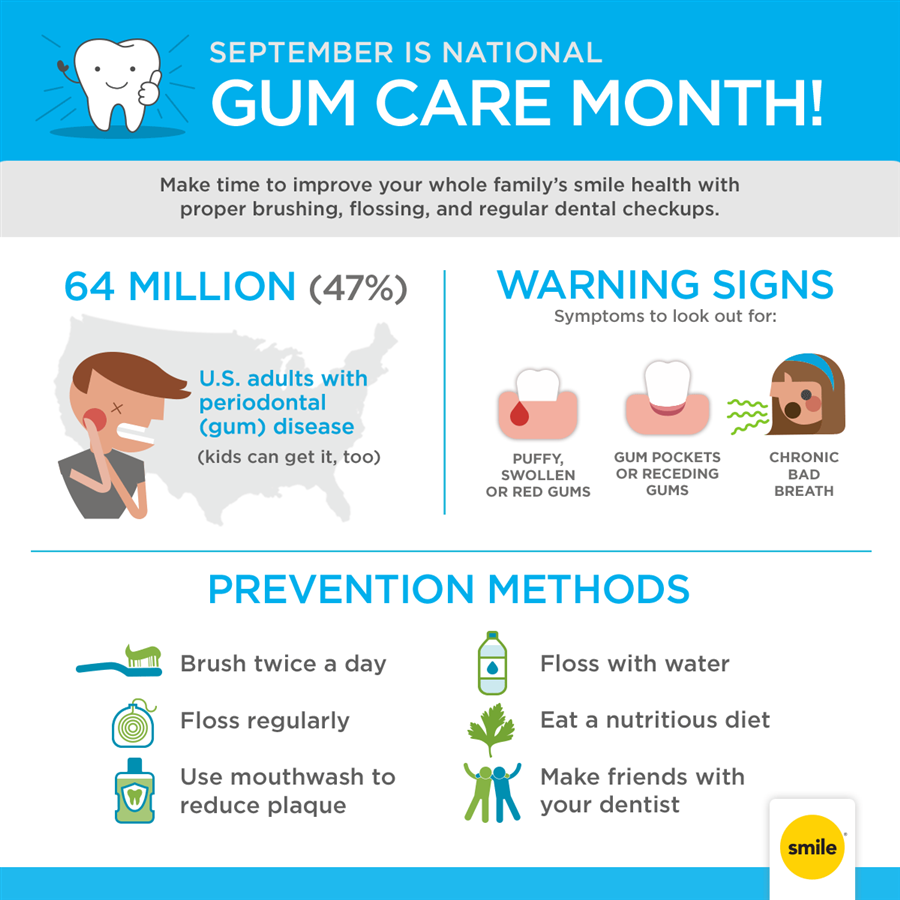
Dr. Caye and his team at Premier Dental join dental practices and professionals around the country each September in celebration of National Gum Care Month. Why is gum care so important? Let’s dive in and find out!!
You may not have heard of Periodontal Disease, if you visit your dentist regularly and you haven’t – that’s probably a good sign! Periodontal Disease is also known as Gum Disease and almost 50% of adults have some form it. Here’s the scary part – if left untreated, it can lead to even more serious problems, ranging from tooth loss to heart disease.
Yes … that’s why Gum Care Month is SO IMORTANT!! However, Gum Disease can be prevented!
There are several preventative actions you can take to help avoid the onset of gum disease. We want you to be on the lookout for these tell-tale signs so, we’ve gathered some interesting information and statistics for you as well.

Toothaches, cavities, and other various dental problems can seem to be isolated to just your mouth, but the truth is, your oral health is directly tied to your body’s overall health.
When your mouth is happy and healthy, so is the rest of your body. On the flip side, when a dental problem presents itself, it could affect other systems in your body or could be an indicator of further health problems. Let’s dive more into the connection between oral health and overall health!
Related Article from the American Dental Association (ADA): The Mouth Is A Window Into The Health of The Body
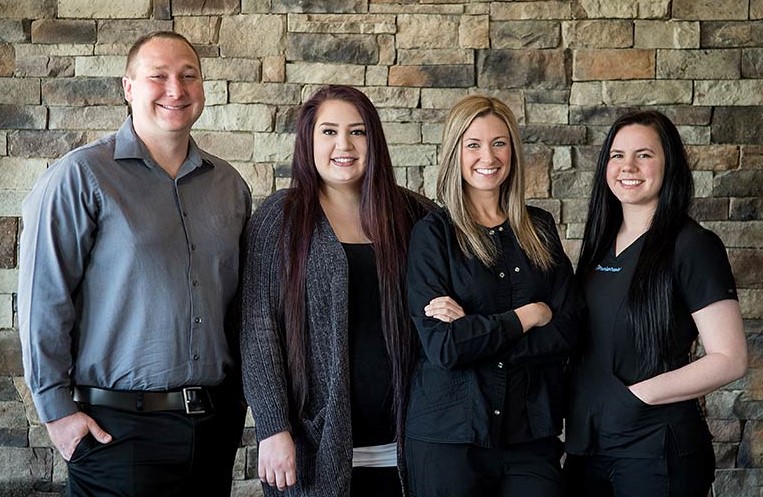
Dear Premier Dental Family,
We hope this letter finds you and your family in good health. Our community has been through a lot over the last few months, and all of us are looking forward to resuming our normal habits and routines, including routine dental appointments.
While many things have changed, one thing has remained the same: our commitment to your safety.
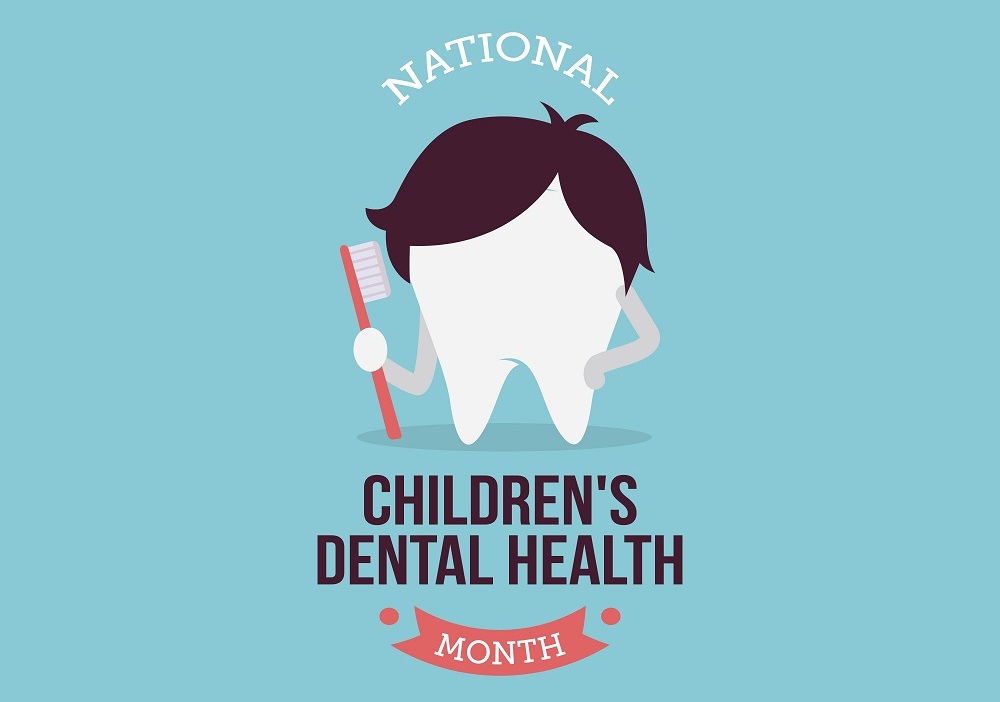
We’re SMILING because February is National Childrens Dental Health Month and we LOVE our Little Patients!! When you have small kiddos, like we do, it can be overwhelming to make sure you’re doing “all the things” to keep these tiny humans healthy and happy! To take some of the guess work out of this subject, we’re going to focus this blog on some questions about childrens dental health that we, as dental professionals AND parents, can answer.
First, let’s explain what National Childrens Dental Health Month is … it was introduced in the month of February by the American Dental Association as an observance to bring together thousands of dedicated dental professionals, healthcare providers, and educators to promote the benefits of good oral health to children, their parents, caregivers, teachers and many others.
For us, it’s a great opportunity to promote the benefits of childrens dental health, because developing healthy dental habits at an early age, including brushing and scheduling regular dental visits, helps children get a good start on a lifetime of healthy teeth and gums.
We want our patients to have beautiful, healthy smiles and we love to help educate families about their dental health, so let’s get started!

Do you have a toothache, but are a little unsettled at the thought of needing root canal therapy? We can get your questions answered and put you at ease. These are some of the questions we’ve gotten from our patients: What is a root canal? Can I avoid getting a root canal? What are the symptoms? And … will it hurt? (more…)